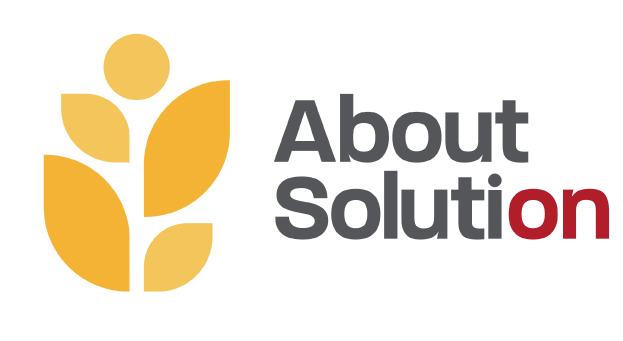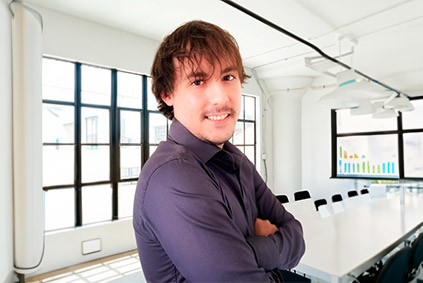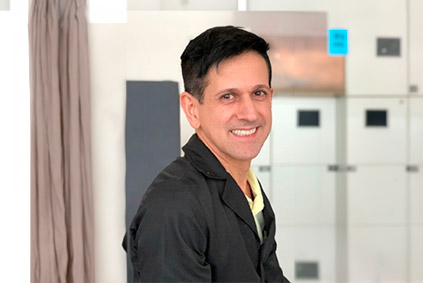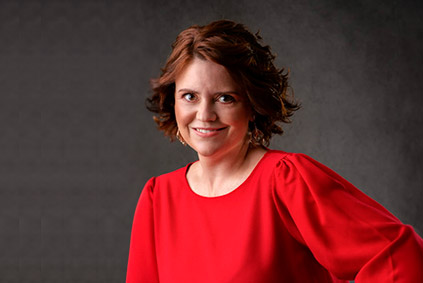Coordinator: Prof. Dr. Silvia Deboni Dutcosky
Sensory and Consumer
Start: March 2024
Classes held weekly on Mondays
and Wednesdays (from 7:00 pm to 10:00 pm)
Total Hours: 440 hours
Duration: 2 years
Course 100% online with live
classes through a digital platform.
The Certificate Program that will position you among
the most sought-after professionals in the market.
What will you learn in
Sensory and Consumer Science Certificate Program?
Professionals working in this field are directly involved in strategic decisions within the company and in diagnosing the sensory experience that consumers have with the product. That’s why Sensory and Consumer Science Certificate Program by About Solution was developed for those seeking specialized training and aiming to stand out in the market.
With this course, you will be able to:
- Work in various sectors: food, pharmaceuticals, cosmetics, perfumery, among others.
- Lead innovation projects and sensory quality programs within the company.
- Interact and address the demands of R&D, Quality, Marketing, Production, and Sales.
- Plan and implement sensory studies with consumers and trained panels.
- Present results in a concise and accurate manner, easily understandable by non-specialists.
Geared towards professionals working in various sectors.
Interact in real-time and still review the classes.
With practical activities and real-life cases.
Instructors with field experience.
The course has a duration of 24 months and is offered in a distance learning format with synchronous classes in a live virtual classroom with student interaction and participation. Classes will take place online through a video conferencing platform, with a weekly workload of 6 hours.
Explore the 9 modules of the course:
SENSOMETRY 1 and 2
SENSOMETRY 1. Statistics applied to sensory measurements. Measures of central tendency and dispersion; Binomial and nominal distribution; Student's t-test; Chi-square; Correlation and regression; analysis of variance; Multiple mean comparisons. Experimental statistics. Hypothesis testing. Inference. Types of experimental errors.
SENSOMETRY 2. Multivariate statistical analysis. Methods of factorial analysis: Principal Component Analysis (PCA), Correspondence Analysis (CA), and Generalized Procrustes Analysis (GPA). Cluster analysis. Multiple regression analysis. Experimental design planning. Response Surface Methodology, product, and process optimization. Workload: 80 hours.
SENSORY EVALUATION METHODS
Discriminative Methods. Signal detection theory, R Index, and Thurstonian Modeling. Descriptive Methods. Conventional descriptive profiling and its variations. Descriptive methods with consumers. Time and intensity measures. Temporal Dominance of Sensations (TDS). Classic Olfactory Evaluation in Perfumery. Instrumental methods and their relationships with sensory evaluation. Sensory Shelf Life Studies (SSL). Workload: 70 hours.
SENSORY RESEARCH WITH CONSUMERS
Quantitative affective methods for product preference and acceptability, descriptive methods applied to consumers, among others. Population sampling, recruitment, central location tests, in-home use tests, and virtual environments. Segmentation studies. Preference maps and their relationships with product sensory characteristics. Projective maps. Perception maps. Workload: 50 hours.
CONSUMER SCIENCE
Conjoint Analysis: Definition and Applications in Consumer Research using complete factorial designs and data analysis. Emotions and their effects on product choice and consumption: explicit data collection methods, advantages, and disadvantages. Expectation and its influence on the perception of sensory attributes, acceptance, and emotions. Conducting studies with the child audience: specificities, scales, and considerations in protocol development. Workload: 50 hours.
SCIENTIFIC METHODOLOGY
Methodology for experiment planning. Elements of an experiment. Experiment classification. Foundation and monitoring of the stages of Course Conclusion Work (TCC) development. Criteria for evaluating work stages: literature review, information planning and collection, detailed project, experimental development, data processing and interpretation of results, evaluation, and final defense. Workload: 25 hours.
SENSORY MARKETING
Traditional versus experimental marketing. Consumption experience. Memorization. How and where to apply sensory marketing. The use of multisensory features. Sensory branding. Workload: 20 hours.
NEUROSCIENCE APPLIED TO SENSORY ANALYSIS
Principles of Neuromarketing. Introduction to Neuroscience. Basic emotions. Objective and psychometric methodologies for measuring emotional impact. Evaluation of emotional impact and memory on the consumption experience. Workload: 20 hours.
SUBSTANTIATION OF SENSORY CLAIMS
Verification and support of sensory claims. Importance of briefing and experiment design. Brazilian standards and regulatory bodies for claim verification (ABNT, ANVISA, CONAR). International procedures and standards. Types of claims. Tests used to support claims. Data collection and analysis. Data processing and interpretation of results. Workload: 15 hours.
FINAL COURSE PROJECT
Development of the Course Conclusion Work (TCC), involving stages of project qualification, data collection and processing, interpretation of results, evaluation, and final defense. Workload: 80 hours.
THE BEST INVESTMENT IS IN YOURSELF
Secure your postgraduate degree
in Sensory and Consumer Science.
R$790,00
24x
OUR DIFFERENCES
PROFESSORS
Meet our team of course instructors.
All with experience in their respective areas.
FOR WHOM IS OUR CERTIFICATE PROGRAM
Professionals working in research, marketing, product and process development, production, and quality, with a specific interest in the field of sensory sciences and consumer studies for all types of consumer products. Food Engineers, Agronomists, Chemists, Pharmacists, Nutritionists, Food Technologists, Industrial Chemists, Mathematicians, Statisticians, Doctors, Administrators, Psychologists, among others.

TESTIMONIALS FROM CERTIFICATED ALUMNI

4 Steps to building an International Career in Sensory
With the global growth in the field of Sensory & Consumer Insights, international opportunities are emerging for professionals who are prepared and attentive to them. In light of this, we spoke with professionals who are pursuing an international career in Sensory & Consumer Insights and have prepared a comprehensive blog post with 4 steps for those looking to follow this path.
Sensory Science
Sensory Science establishes, grades, and defines the quality criteria of consumer products. Sensory quality is the fundamental criterion:
- That defines the “repurchase” of the product, sustaining the competitiveness of the company;
- That defines perceived value, i.e., “what” the consumer desires and “why”;
- That guides the product development process before launch, preventing failures and increasing success rates;
- That defines the standardization of perceived quality, to enhance the consumer loyalty;
- That guides cost reduction programs or margin management;
- That defines the product’s shelf life.
Expected Contribution of this Professional:
- Obtain sensory analysis results to ensure and control sensory quality standards of products for consumers. Applications in product and process development, researching new suppliers, studying alterations in formulations, processes, and packaging, storage procedures, and product shelf life studies.
- Obtain sensory analysis results to guide and direct the R&D process.
- Obtain comparative sensory analysis diagnoses regarding strengths and weaknesses compared to competitors.
- Plan consumer sensory studies to diagnose and quantify the sensory experience consumers have with the product and the objectives they seek to achieve by choosing one product over another. Know how to obtain and interpret results effectively for the competitive advantage of the company and develop successful products in the market.
- Plan and conduct tests to verify sensory advertising and labeling claims.
- Obtain valid conclusions (statistical significance) as an essential tool for decision-making in the company’s strategic procedures.












